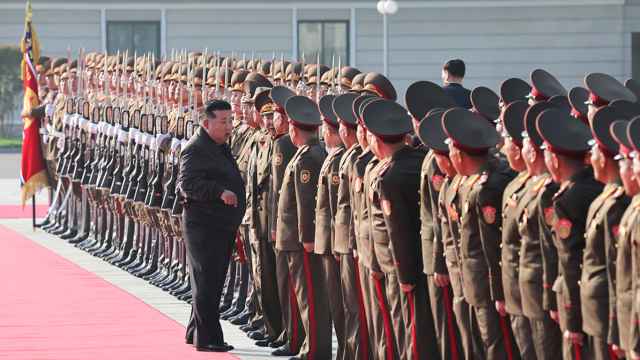Police in the central Russian region of Ryazan have detained three young men accused of tying a firecracker to a cat and blowing it up, an incident that was recorded on video and posted online, the TASS news agency reported Sunday.
The investigation was launched earlier this weekend after the footage began circulating on social networks and prompted an outcry from animal rights activists, who urged the authorities to find and prosecute the attackers, the RIA Novosti news agency reported.
The video showed young men tying a cat's paws with a duct tape, taping a firecracker to the animal's body, and igniting the fuse. The animal did not resist and appeared calm while the men taped its paws, but started meowing in distress when thefuse began burning — only to be silenced by the firecracker exploding.
One of the men could be heard saying in the video after the explosion: "To shreds, wasn't it."
The video initially appeared on YouTube in January, with a description saying the footage came from the hard drive of a computer found in a dumpster in Ryazan, local news website Rzn.info reported. YouTube removed the video for breaking the online service's rules against graphic depictions of cruelty, the report said.
Investigators identified the men as residents of a Ryazan region village, and said the attack took place in the summer of 2005, TASS reported. Police detained three local men, aged 28, 29 and 38, all of whom have prior criminal records, the report said.
Under Russian law, the maximum penalty for cruelty to animals is two years in prison, according to an online statement by animal rights activists, RIA Novosti reported.
State Duma lawmaker Oleg Lebedev, a member of the legislature's nature and ecology committee, said his panel is drafting a bill that would introduce tougher sentences for cruelty to animals, TASS reported.
A Message from The Moscow Times:
Dear readers,
We are facing unprecedented challenges. Russia's Prosecutor General's Office has designated The Moscow Times as an "undesirable" organization, criminalizing our work and putting our staff at risk of prosecution. This follows our earlier unjust labeling as a "foreign agent."
These actions are direct attempts to silence independent journalism in Russia. The authorities claim our work "discredits the decisions of the Russian leadership." We see things differently: we strive to provide accurate, unbiased reporting on Russia.
We, the journalists of The Moscow Times, refuse to be silenced. But to continue our work, we need your help.
Your support, no matter how small, makes a world of difference. If you can, please support us monthly starting from just $2. It's quick to set up, and every contribution makes a significant impact.
By supporting The Moscow Times, you're defending open, independent journalism in the face of repression. Thank you for standing with us.
Remind me later.






